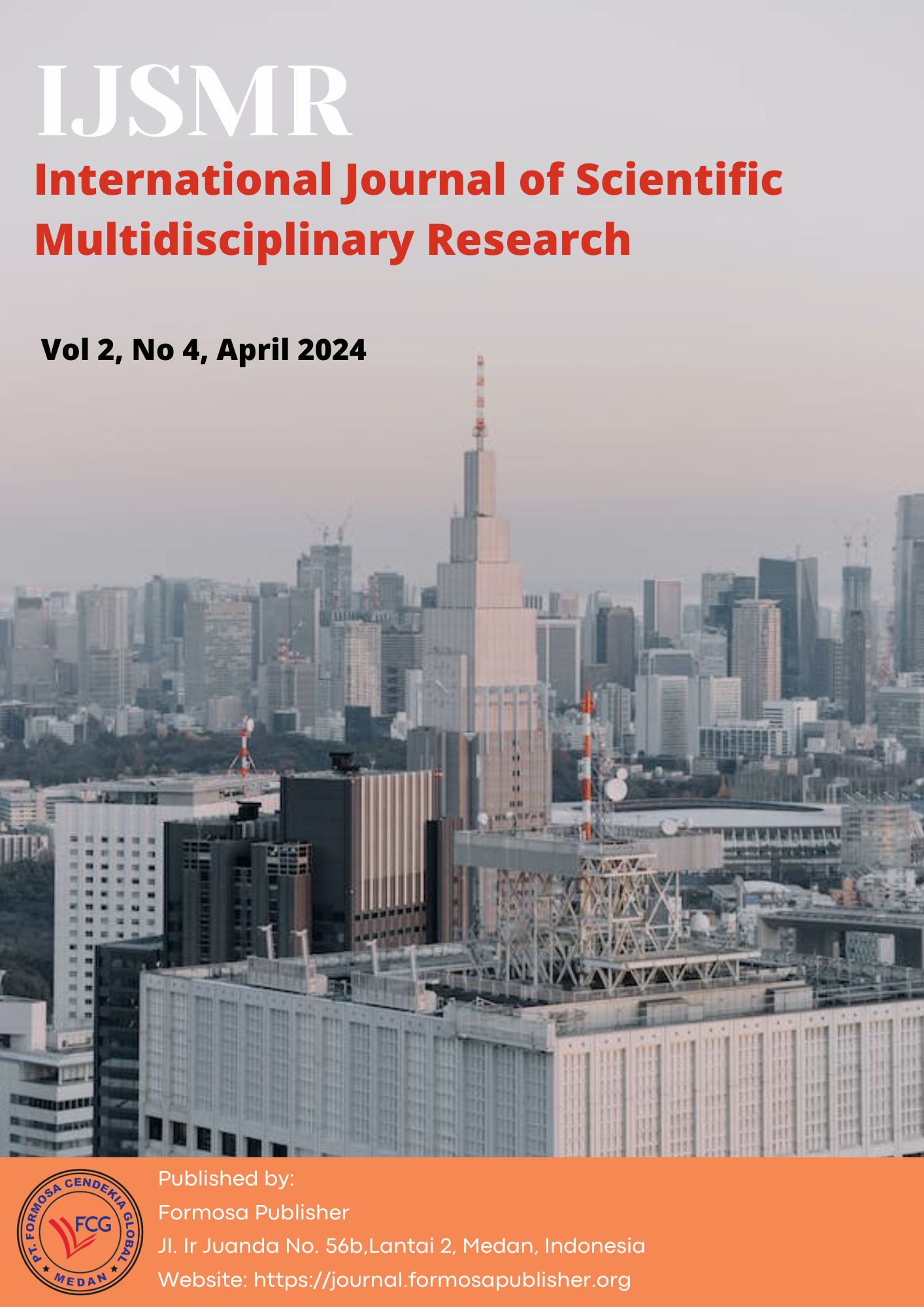The Urgency of Artificial Intelligence Criminal Responsibility as Cybercriminals
DOI:
https://doi.org/10.55927/ijsmr.v2i4.8762Keywords:
Criminal Liability, Artificial, IntelligenceAbstract
The development of information technology at this time has created many changes in life in society, the presence of artificial intelligence (A.I) in the midst of human life activities has provided many benefits both in aspects, so that today's society is very dependent on A.I which is considered very helpful in its work. Of course it can be seen that A.I also does the same thing as humans and has a positive impact and a negative impact on human life, where every aspect has a great impact on human life. The formulation of the problem in this study is the regulation of the use of artificial intelligence in Indonesia at this time and the Urgency of Criminal Responsibility of Artificial Intelligence as Perpetrators of Cybercrime. This research belongs to the normative legal research type. and the nature of this research is descriptive analysis. The results of the discussion in this study found that the A.I Regulation at this time is not specifically regulated by the law on A.I, but is regulated in the ITE law, namely in article 1 number 8 concerning electronic agents, where electronic agents are interpreted as A.I by analogy with the meaning of the word "automatic", then the next discussion is about the criminal responsibility of artificial intelligence as cyber criminals is a very important study for The lack of discussion on the use of A.I in Indonesian state regulations raises concerns in the public about the increasing potential for violations of the law and crime by these entities
Downloads
References
A P Simester and Andreas von Hirsch, "Crimes, Harms, and Wrongs: On the Principles of Criminalization", (Hart Publishing 2014).
Bambang Waluyo, Legal Research in Practice, (Jakarta: Sinar Grafika, 1991).
Bernard Arief Sidharta, Reflections on the Structure of Legal Science (A Research on the Foundation of Philosophy and the Nature of Legal Science as a Foundation for the Development of Indonesian National Law), Mandar Maju, Bandung.
Endah Dewi Nawaningsi Sukarton, Privacy Protection in the New Normal Digital Lifestyle Era related to Cyber Power, Bandung, PT Refika Aditama, 2022, p. 25.
Enni Soerjati Priowirjanto, "The Urgency of Regulation on Artificial Intelligence in the Online Business Sector during the COVID-19 Pandemic in Indonesia", Journal of Bina Mulia Hukum, Vol. 6, No. 2 (2022).
Eva Istia Utawi and Neni Ruhaeni, Law Enforcement Against Pornography According to Laws and Regulations on Pornography Through Social Media, Bandung Conference Studies: Law Studies, Vol. 3, No. 1, 2023.
George P Fletcher, Basic Concepts of Criminal Law (Oxford University Press 1998).
Gregorius Widiartana and Vincentius Patria Setyawan, "Prospects of Artificial Intelligence Criminal Liability Regulations in Indonesian Criminal Law," Journal of Citizenship, Vol. 7, No. 1 (2023), pp. 327-328.
Gustav Radbruch in Dwika, "Justice from the Dimension of the Legal System", http://hukum.kompasiana.com.
https://artificialintelligenceact.eu/
https://id.quora.com/Apa-ketentuan-minimal-suatu-sistem-layak-disebut-kecerdasan-buatan-AI-Jika-saya-hanya-membuat-ratusan-juta-baris-kode-if-else-dengan-kata-kunci-dan-basis-data-yang-besar-apakah-sistem-itu-layak-disebut-sebagai retrieved January 30, 2024
https://pusiknas.polri.go.id/detail_artikel/kejahatan_siber_di_indonesia_naik_berkali-kali_lipat.
I Gusti Kade Budhi Harryarsana, Artificial intelligence: Concepts, Potential Problems, to Criminal Liability, (Depok: Rajawali Press, 2022).
Itsna Hidayatul Khusna and Sri Pangestuti, Deepfake, A New Challenge For Netizens, Journal of Promedia, Vol. 5, No. 2, 2019.
Ivana Dewi Kasita, Deepfake Pornography: The Trend of Online-Based Gender Violence (KGBO) in the Covid-19 Pandemic Era, Journal of Women and Family, Vol. 3, No. 1, 2022.
Ivana Goddess Kasita. Deepfake Pornography: The Trend of Online-Based Gender Violence (KGBO) in the Covid-19 Pandemic Era. Journal of Women and the Family, Vol. 3, No. 1, 2022.
Lysy C. Moleong (et.al), Implementation of Cluster Computing for Animation Rendering, E-Journal of Electrical and Computer Engineering, Vol. 2, No. 3, 2013.
Marissa Koopman (et.al), Detection of Deepfake Video Manipulation. Proceedings of the 20th Irish Machine Vision and Image Processing Conference, University of Amsterdam &; Netherlands Forensic Institute, 2018.
Muhammad Dhafin Saptari, Artificial Intelligence as a Civil Law Subject Entity, Parahyangan Catholic University, https://repository.unpar.ac.id/handle/123456789/15136, 2022.
Opportunities for Swiss AI companies in Japan' (Swiss Business Hub Japan, 2019).https://www.s-ge.com/sites/default/files/publication/free-form/s-ge-artificial-intelligencereport-japan.pdf.
Ravizki, E. N., &; Latitude Yudhantaka. (2022). Artificial Intelligence as a Legal Subject: A Conceptual Review and Regulatory Challenges in Indonesia. Notaire, 5(3).
Ridwan H.R., State Administration Law, Raja Grafindo Persada, Jakarta, 2006.
Russel Butarbutar, Cybercrime against Individuals: Types, Analysis and Development, Technology and Economics Law Journal Vol. 2 No. 2, 2023.
Soerjono Soekanto and Sri Mamuji, Normative Legal Research (A Brief Review), Rajawali Pers, Jakarta, 2001.
Stuart Russell and Peter Norvig, 'Artificial Intelligence: A Modern Approach (3rd Edition)' (Pearson 2009)
Yurizal, Law Enforcement of Cyber Crime, Malang, Media Nusa Creative, 2018
Downloads
Published
How to Cite
Issue
Section
License
Copyright (c) 2024 Cheny Berlian, Helmi, Hafrida

This work is licensed under a Creative Commons Attribution 4.0 International License.
















